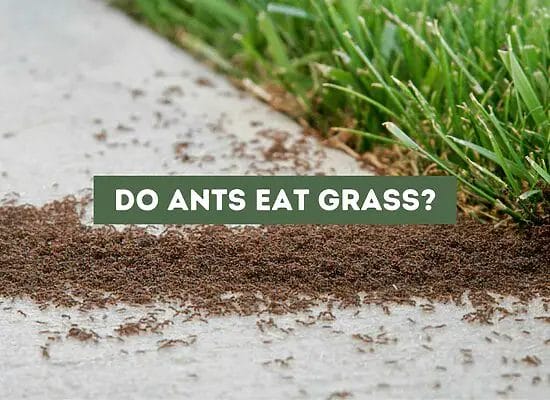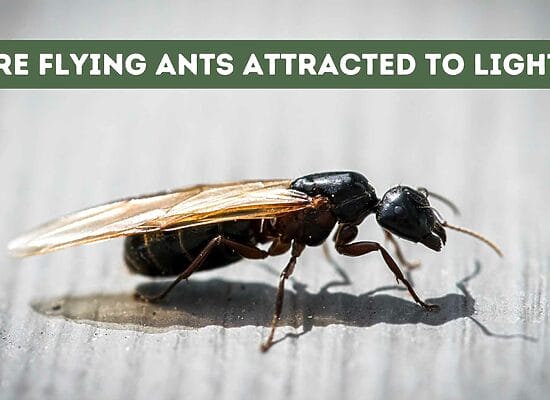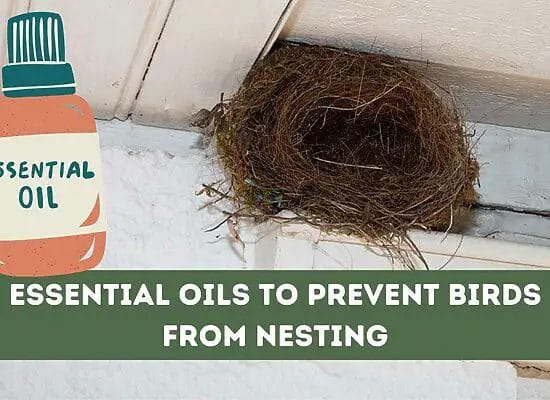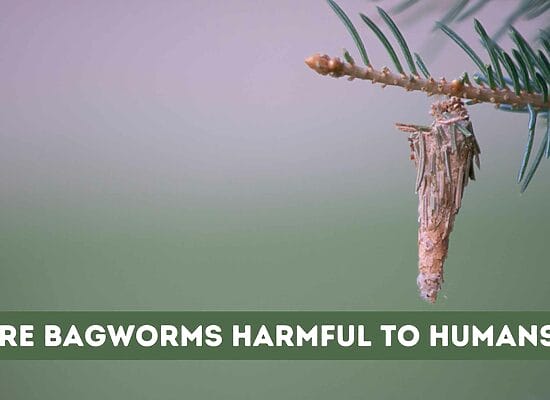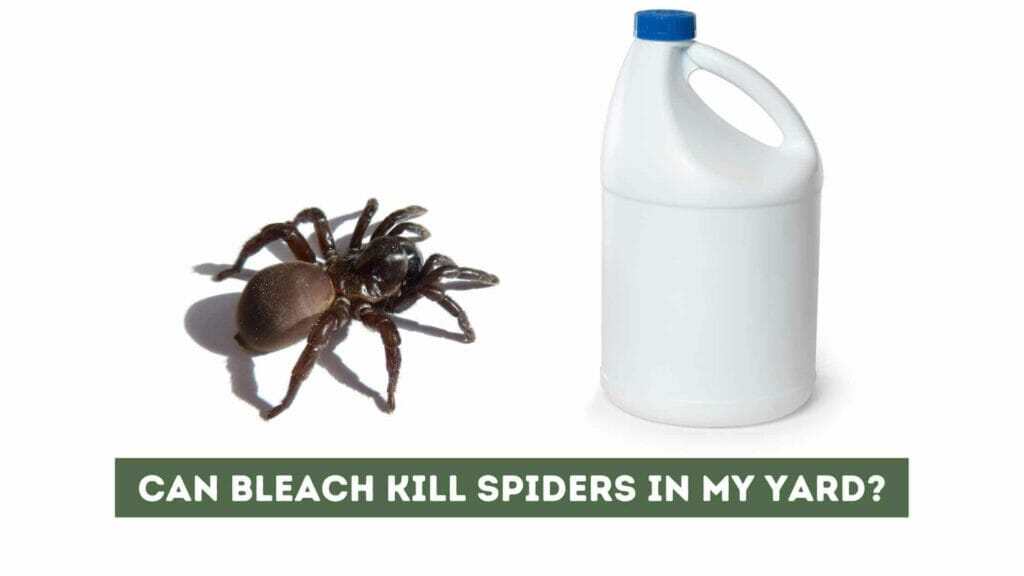
When it comes to dealing with spiders in and around the home, many people wonder if common household products, such as bleach, can be used as a solution to eliminate these unwelcome guests. But can bleach kill spiders?
Bleach is a widely used cleaning and disinfecting agent known for its ability to kill bacteria, and its strong odor might suggest it could work well against pests, including spiders.
It is important to note that while bleach has the ability to kill spiders, it is not a registered insecticide due to its harmful side effects. Bleach contains acetic acid, which gives it the capacity to keep spiders away and eliminate their webs when used in a diluted form. To maximize its effectiveness, it’s essential to understand how to use bleach properly and safely while considering possible alternative solutions to address spider issues.
Can Bleach Kill Spiders?
Bleach, a common household cleaning agent, has the potential to kill spiders due to its active ingredient, hypochlorite (sodium hypochlorite). This chemical, which is effective against many insects, can be lethal when it comes in contact with spiders or when they ingest it. Additionally, bleach’s acidic properties give it the ability to eliminate spider webs.
However, it is essential to note that bleach is not a registered insecticide. Although it can kill spiders and reduce their populations, bleach may also have harmful side effects on humans, pets, and the environment.
To effectively use bleach to kill spiders, follow these steps:
- Mix bleach and water in a spray bottle, creating a solution with a ratio of approximately 1:3.
- Locate spiders and their webs in and around your living space.
- Generously spray the bleach solution directly onto the spiders and their webs, ensuring ample coverage.
- Wipe or clean the affected area after the spiders and their webs have been eliminated.
While bleach can provide a temporary solution for controlling spider infestations, it is crucial to exercise caution and consider alternative methods, such as registered insecticides or natural remedies, to minimize potential risks.
How Bleach Works on Spiders
Bleach is a powerful cleaning agent with the ability to kill a variety of pests, including spiders. The main bleach component, acetic acid, is responsible for its effectiveness towards spiders. When spiders come into contact with bleach, the acetic acid damages their exoskeleton, ultimately causing their death.
Chlorine bleach is considered more effective than other types of bleach, as it has stronger insecticidal properties. Apart from its ability to kill spiders, bleach can also help to eliminate spider webs and reduce the chances of spiders returning to the treated area.
To use bleach against spiders, one can create a diluted bleach solution and apply it directly on spiders or spray it in areas where spiders are commonly found. It is important to remember that bleach is a harsh chemical, so precautions should be taken when using it, such as wearing gloves and avoiding direct contact with skin and eyes.
Alternative Methods to Eliminate Spiders
While the use of bleach can be an effective way to kill spiders, there are several alternative methods that can be just as effective without the harmful side effects of using bleach. In this section, we will discuss chemical solutions, natural remedies, and physical removal techniques that can be used to eliminate spiders from your home.
Chemical Solutions
There are various commercial spider repellents and insecticides available on the market. These products are specifically designed to target spiders and are often safer for use in your home than bleach. Some examples of these products include sprays, dusts, foggers and insect bombs that can be purchased at your local store or online.
- Insecticide Sprays: Insecticide sprays are one of the most common chemical solutions for eliminating spiders. They contain active ingredients such as pyrethroids (e.g., bifenthrin, cyfluthrin, or lambda-cyhalothrin), which are synthetic chemicals designed to target the nervous systems of spiders and other insects. To use an insecticide spray, simply apply it directly to areas where spiders are commonly found, such as corners, cracks, and crevices, as well as potential entry points like doors and windows.
- Residual Dusts: Residual dusts are another effective chemical solution for controlling spiders. These dusts typically contain active ingredients like diatomaceous earth or silica gel, which work by damaging the exoskeleton of spiders, causing them to dehydrate and die. To apply residual dusts, lightly dust the targeted areas, such as the corners of rooms, behind furniture, and along baseboards, where spiders may be hiding or traveling. You can also dust potential entry points like window sills, door frames, and cracks in walls or foundations. Be sure to wear gloves and a dust mask when applying these products, as they can irritate your skin and respiratory system.
- Foggers and Insect Bombs: Foggers and insect bombs are chemical solutions designed to release their active ingredients, such as pyrethroids or pyrethrins, into the air to eliminate spiders and other pests in a confined space. These products are typically used in areas with heavy infestations or hard-to-reach spaces like attics and basements. To use a fogger or insect bomb, follow the manufacturer’s instructions carefully, ensuring that you vacate the area during treatment and ventilate it thoroughly afterward.
Natural Remedies
For those who prefer a more natural approach, there are various natural remedies that can help keep spiders at bay. Some of these remedies include:
- Essential oils: Many essential oils, such as peppermint and lavender, are known to repel spiders. Dilute these oils in water and use them to spray around areas where spiders tend to gather.
- Vinegar: The acetic acid in vinegar can be an effective spider repellent. Mix equal parts water and white vinegar in a spray bottle and apply it to areas where you’ve seen spiders.
- Citrus peels: Spiders do not like the smell of citrus. Place citrus peels, such as those from oranges or lemons, around your home to deter spiders from entering.
Physical Removal
If you’re comfortable doing so, physical removal of spiders can be an effective and non-toxic way to eliminate them from your home. Some methods of physical removal include:
- Manual removal: Use a jar or glass and a piece of paper to gently trap and release the spider outside.
- Vacuuming: If you see a spider web, using a vacuum to remove the web and the spider can help keep your home spider-free.
- Sticky traps: Place sticky traps designed for spiders near windows, doors, and other entry points to catch spiders as they try to enter your home.
Potential Risks of Using Bleach
This topic discusses the potential risks and hazards associated with using bleach as a method to kill spiders in and around your home. It highlights the adverse effects of bleach on humans, pets, and the environment.
Health Concerns
Bleach, as a chemical compound, may cause various health issues when not used properly. Using bleach to kill spiders exposes individuals to potential skin irritation, sore throat, and respiratory problems. To minimize these risks, make sure to follow proper safety guidelines when handling bleach, such as wearing protective gear and ensuring proper ventilation.
Environmental Impact
While bleach can effectively kill spiders and other pests, using it indiscriminately can negatively impact the environment. Bleach can make its way into water systems, where it may affect aquatic life and disrupt ecosystems. Thus, it is essential to consider alternative ways of dealing with spiders that have a lower environmental impact or use bleach sparingly and appropriately.
Property Damage
Using bleach to eliminate spiders may also cause damage to your property. Bleach is a corrosive substance that may lead to discoloration or degradation of certain surfaces, such as wood, fabrics, and metals. Consider more targeted methods for dealing with spiders, like traps or insecticides, to minimize the risk of unintentional property damage.
Preventing Spider Infestations
In order to prevent spider infestations, it’s essential to take a proactive approach. By utilizing home maintenance tips and pest control strategies, you can effectively minimize the likelihood of encountering unwanted arachnid visitors.
Home Maintenance Tips
Keeping your home clean and well-maintained is crucial in discouraging spiders from taking up residence. Consider the following tips:
- Regularly clean your home, paying special attention to corners, under furniture, and other hard-to-reach areas where spiders may hide.
- Seal any gaps or cracks in your home’s exterior to prevent spiders from entering.
- Maintain your lawn and garden by trimming overgrown vegetation and removing debris, which can serve as hiding spots for spiders.
- Remove any clutter in and around your home that could provide hiding spaces for spiders, such as piles of wood, leaves, or other materials.
- Use window screens and door sweeps to prevent spiders from entering through openings.
Pest Control Strategies
In addition to regular home maintenance, employing effective pest control strategies can also help prevent spider infestations. Some useful methods include:
- Utilizing natural spider repellents, such as peppermint oil or vinegar, to deter spiders from entering your home.
- Regularly inspecting your home for signs of spider activity, such as webs or egg sacs, and taking appropriate action if any are detected.
- Considering the use of chemical treatments such as bleach to eliminate spiders and their webs when necessary.
- Consulting with a professional pest control service to help manage and prevent infestations, particularly if you are dealing with a significant spider problem.
By following these home maintenance and pest control tips, you can effectively reduce the likelihood of encountering spider infestations in your home.
Conclusion
In summary, bleach can indeed be effective in killing spiders when used correctly. A spray bottle with bleach can be used to eliminate spiders, as it works quite quickly. Use a mixture of one-part bleach with three parts water for optimal results.
It’s also essential to exercise caution while handling bleach, as it is a strong chemical that can cause skin and eye irritation and other health issues if inhaled. Always wear gloves when using bleach and ensure proper ventilation in the area where it is applied.



